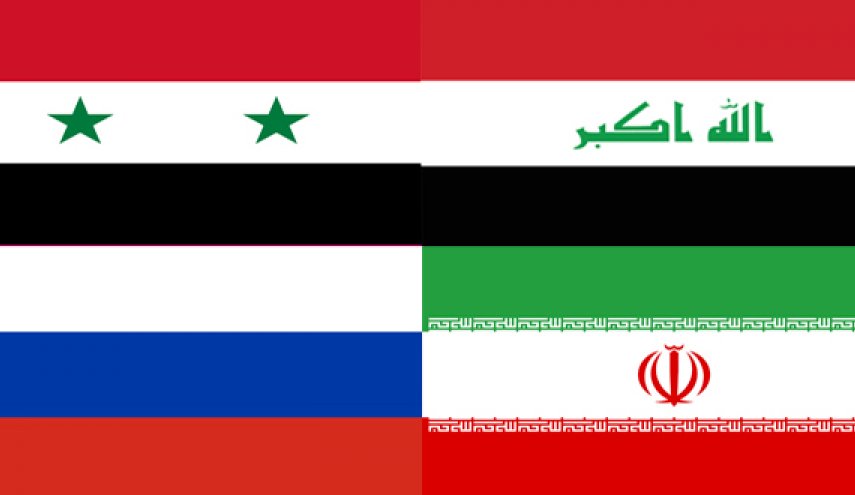
RNA - He said they would leave those countries only if the governments there wanted them to. Velayati went on to say that under international law the rightful positions of Iran’s military presence in Syria are coordinated with the Syrian government as well as the Russian government. This was in response to a question about the United States and Israel demanding a pullout of all Iranians from Syria.
On balance and amid escalating lies by US President Donald Trump and Israeli Prime Minister Benjamin Netanyahu, here are a few realities:
1- A record high percentage of Iraqis and Syrians say it was Iran which helped them defeat the terrorist groups of ISIL and Al-Qaeda. Though Iran has only a small number of forces in Syria, they have become an increasingly contentious issue because of Israel’s anger – and for good reasons. Israeli Premier Benjamin Netanyahu was in Russia recently to push Vladimir Putin on the idea of forcing them out of Syria. This is also said to be a topic of discussion in the Putin-Trump summit on Monday.
2- There are still remnants of ISIL and Al-Qaeda in Iraq and Syria. Iranian forces are there at the invitation of the central governments – unlike the US forces and their regional allies. Velayati’s comments are likely intended to make it clear that Iran’s presence in Syria and Iraq is not contingent on American or Russian permissions, but rather on the Syrian government and Iraqi government’s invitations.
3- America needs more war and chaos, not fewer, because it gives Washington a perfect excuse to sell arms to its Arab allies, plunder the region’s resources, build new illegal military bases, protect Israel, and contain the rising influence of Iran and Russia. The US wants to get Iran out of the picture because it is standing in its way. On the other hand, Iran keeps telling the United Nations that there is no military solution to the Syrian conflict.
4- Historically, America’s Arab allies have contributed more to the region in terms of instability and chaos than they would like to admit. Together with the United States, Britain, and France, the Saudis are trying to steal the wealth of Yemen from its people and they are facing considerable resistance. The illegal war is not a proxy war with Iran. It is uprooting Yemen’s sovereignty and the ability of Yemenis to resist this long-term campaign of basically robbing their country of its natural resources and its ability to maintain independence from the US and Riyadh that unfortunately the rest of the Middle East has already been facing since the 9/11 attacks in the US.
5- Iranian military advisers are not in Syria and Iraq to take over their energy resources. To the contrary, they are sacrificing their lives to protect these resources for the people. President Trump may have announced he intends to help Iraq (although it’s not clear with what sums and means), but he has already gotten into a quarrel with Iraqi Prime Minister Haider al-Abadi when he said the United States should have taken over Iraq’s oil fields back in 2003.
6- Trump’s claim that Iranian forces destabilize Iraq is dead wrong. Iran has important trade agreements with Iraq and has been using its influence there to soothe tensions. Examples to corroborate this claim are galore, with the last one being its mediation efforts to negotiate an end to Kurdistan's independence bid or its positive role in the start of coalitions among factions that have won the recent elections in the country. Iran is training the Iraqi army and volunteer Shiite-Sunni forces and is Iraq’s most important partner in the war on terror. Iran is also Iraq’s most important trade partner (some $6 billion worth of goods, not including oil). Iran has a presence and influence in the Kurdish region as well, especially in its Eastern part that shares a border with it and sees in Iraq a bridge to Syria and a vital trade pass to other Arab states. So it is ridiculous to claim that Iran is destabilizing Iraq.
7- After so many years of war and bloodshed in Iraq and Syria, terrorism attacks and violent crime rates are actually at historical lows, with the suicide bombing rate back to its level from the early 2004. ISIL attacks have been declining too since 2018 – long before Trump’s “surge” to “liberate” Raqqa. The remaining militants of ISIL are now heading to Afghanistan with the US aid. Thanks to the sacrifices of Iranian military advisors, there is no new ISIL or Qaeda “surge” in Iraq and Syria. They are losing on all fronts.
847/940